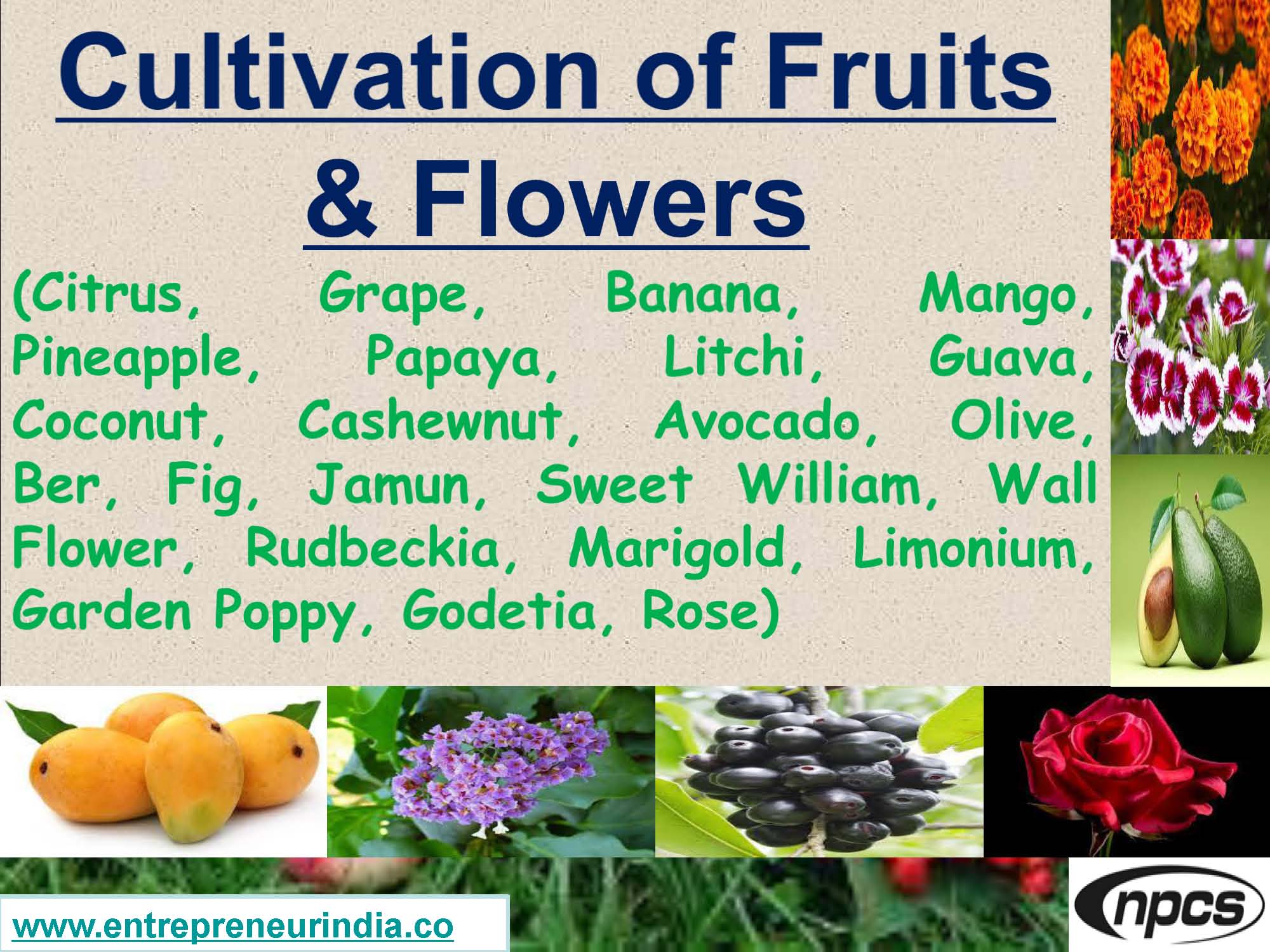
The agriculture sector is evolving rapidly, blending tradition with innovation to meet rising global demands. Among the many lucrative ventures today, fruit & flower farming stands out for its consistent returns and export potential. From health-conscious consumers seeking fresh fruits to event planners and cosmetic industries relying on vibrant flowers, the market remains strong year-round. Moreover, farmers are increasingly shifting to high-value crops like citrus fruits, olives, and marigolds to boost income per acre. With strategic planning, even small-scale farms can turn into profitable enterprises. This article explores the most promising opportunities in fruit & flower farming for anyone looking to enter or expand in this rewarding field.
Profitable Fruit & Flower Farming Options for Sustainable Growth
The key to success in fruit & flower farming lies in choosing the right crops for your climate, soil, and market access. With proper care, these plants not only offer high yields but also support organic practices, value-added processing, and export potential. Let’s explore a few crop options that are both practical and profitable.
Read More :Food & Agro Processing
Citrus Fruit Farming: Tangy Profits with Tangible Demand
Citrus fruits like oranges, lemons, and limes are among the most popular fruit crops worldwide. They are packed with Vitamin C and widely used in juices, culinary dishes, and health supplements. Citrus plants adapt well to tropical and subtropical climates, requiring moderate care but offering high yields per acre. Moreover, citrus farming enables multi-product income streams, including pulp, essential oils, and peel-based by-products. In contrast to perishable fruits, citrus has a relatively longer shelf life, making it ideal for both local and export markets. As a result, it remains a cornerstone of successful fruit & flower farming strategies in India and beyond.
Olive Farming: A New-Age Crop with Global Appeal
Once seen as unfamiliar, olive cultivation is now gaining ground in parts of India, especially in Rajasthan and the Himalayan foothills. Olives are valued for their oil, which is a staple in healthy diets and cosmetic formulations. Though olive trees take time to mature, they require less water and are remarkably hardy once established. Moreover, cold-pressed olive oil commands a high price in the international market. By entering into cooperative ventures or contract farming arrangements, growers can reduce initial risks. Olive farming offers long-term rewards, positioning itself as a sustainable and premium option in fruit & flower farming.
Marigold Cultivation: The Golden Bloom of Prosperity
Marigolds are more than just decorative flowers—they are widely used in religious ceremonies, weddings, cosmetics, and herbal remedies. Their vibrant color, long flowering period, and pest-repelling properties make them a favorite among farmers and florists alike. Marigold farming requires relatively low investment and produces returns within a few months, making it ideal for small and marginal farmers. Moreover, dried marigold petals are in demand in the poultry industry as natural feed additives due to their high carotenoid content. With strong demand and quick turnover, marigold is an excellent entry point for those new to flower cultivation within fruit & flower farming.
Rose and Jasmine Cultivation: High-Value Fragrance Crops
Roses and jasmine are not only loved for their beauty but are also key ingredients in perfumes, essential oils, and skincare products. These fragrant flowers grow well in temperate to subtropical climates and can be harvested multiple times a year. Moreover, they fetch high market prices, especially when sold fresh or processed into oil. While they require regular maintenance and pest control, the investment often yields premium returns. Their use in religious rituals and festive décor further ensures a stable demand. These crops are essential in scaling up a fruit & flower farming business into a more specialized and value-driven model.
Dragon Fruit and unfamiliar Varieties: Niche Markets, Big Profits
Dragon fruit has gained immense popularity for its vibrant appearance, unique flavor, and nutritional benefits. Though it is a cactus species, it adapts well to arid and semi-arid regions, making it a suitable crop for water-scarce areas. Moreover, the fruit commands a premium price in both domestic and export markets. Alongside dragon fruit, farmers are also exploring other unfamiliar varieties like passionfruit, blueberries, and kiwi. These niche crops require careful planning but yield high profits due to their novelty and market scarcity. Incorporating such crops into fruit & flower farming helps diversify income and tap into urban and global markets.
See Also : Charcoal Projects
Conclusion
In today’s dynamic agri-business landscape, fruit & flower farming offers a profitable path that combines beauty with sustainability. By focusing on high-value crops such as citrus, olive, and marigold, farmers can achieve impressive returns with manageable investment. Moreover, the versatility of these crops supports multiple revenue streams—from fresh produce and essential oils to processed goods and exports. With growing interest in organic, locally sourced, and nutrient-rich products, now is the perfect time to invest in this promising sector. Whether you’re a beginner or an experienced grower, fruit & flower farming provides a vibrant and viable future in agriculture.





